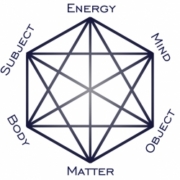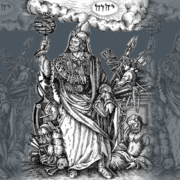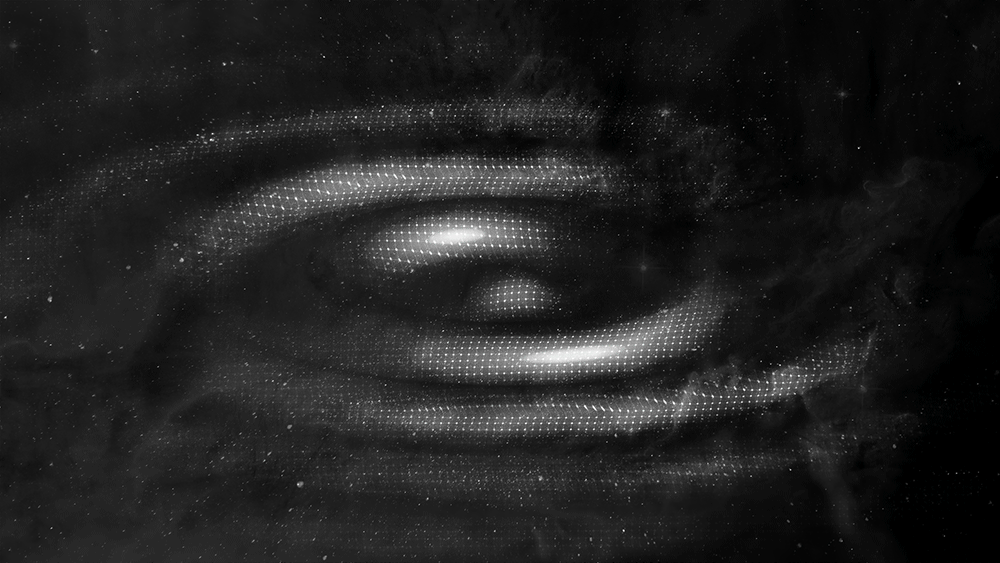Metaphysics in the Quantum Era
Thankfully we do not have to recreate the wheel to in order to try and formulate a more global and holistic intellectual paradigm through which we at least have a chance to address some of these persistent and global problems that are so characteristics of our time, i.e. the so-called “Quantum Era”. Most of the groundwork, thankfully, has been put in place already by Kant, although his framework stops just short of what we need.
Kant’s philosophy is revolutionary in the sense that he is able to integrate the reality of the rationalists and empiricists in one metaphysical system, and he does this by inverting the classical ontological paradigm, declaring that knowledge is only how we may perceive it through our cognitive faculties and that no other definition of it – either empirically or rationally – stands to reason, quite literally. In his own words (translated from the German of course)
If we take away the subject (Humans), or even only the subjective constitution of our senses in general, then not only the nature and relations of objects in space and time, but even space and time themselves disappear; and that these, as appearances, cannot exist in themselves, but only in us. What may be the nature of objects considered as things in themselves and without reference to the receptivity of our sensibility is quite unknown to us. … not only are the raindrops mere appearances, but even their circular form, nay, the space itself through which they fall, is nothing in itself, but both are mere modifications or fundamental dispositions of our sensible intuition, whilst the transcendental object remains for us utterly unknown.[1]
This is his Copernican revolution of philosophy, that objective phenomenon and their relations, and even space and time themselves, are fundamentally psychological phenomenon and they do not exist in and of themselves. To this extent, Kant and Pirsig follow similar lines, going back to the beginning as it were, where reason is considered to be the primordial and most fundamental principle under which all domains of knowledge should be conceived and as such establish their respective systems of metaphysics on the basis of this principle alone – i.e. reason. Reason in this sense is not only considered to be the distinguishing characteristic of man, that which separates it from the rest of the species on the planet, but one which, according to virtually every theo-philosophical tradition that has been created since civilized man has existed on Earth, is the very connecting or linking principle which is the common thread between man and the divine. It is reason that is the means by which man is created in God’s image as is expressed so eloquently in the Judeo-Christian tradition, and it is of course implied in the Eastern theo-philosophical traditions in toto as it is this belief in the fundamental unity of man as a spiritual being, as a rational being, that gives it the unique disposition and capability to experience the divine directly.
But Kant is effectively the de facto standard in Western philosophy today, and as such let’s begin there – taking his philosophy, his metaphysics, as a given rather than starting from scratch and/or immediately irritating all of our Kantian philosophers out there (and I would expect there are many). Taking Kant’s metaphysics as our starting point then, his ontological first principle is mind, an entity that Kant effectively equates with a cognitive engine of sorts through which all knowledge of any sort is gained – a priori knowledge being a specific type of knowledge that is unique to this cognitive entity, like time and space, which represent not basic objective or rational phenomena that exist in and of themselves, but phenomena that exist as a function of the mind and its cognitive capabilities.[2]
Following Kant’s metaphysics, mind basically has three functions more or less, and while we start with Kant’s framework, we adopt a more modern psychological description herein for each of the three faculties that should be easier to understand (no pun intended), slightly adapting the terminology that Kant uses which is translated from the German over 200 years ago. In his mental cognitive framework, there are basically three distinct faculties which in aggregate make up the total function of mind as a cognitive entity:
- perception(Kant’s sensibility): that aspect of mind that directly interfaces with and/or perceives the sensible realm, i.e. the physical world,
- comprehension(Kant’s understanding and imagination): that aspect of mind which works with the faculty of perception to make sense of that which is being experienced. While it is a rational faculty, it does not operate on the same level of rational abstraction as understanding,
- understanding(Kant’s judgment or reason): that faculty of mind that is capable of fully intellectually absorbing the meaning of an experience, applying various higher level intellectual paradigms – sociological, philological, biological, etc. – to an experience through which a deeper level of meaning, or purpose, relative to comprehension certainly, can be acquired.
According to Kant at least, it is through these cognitive faculties that man is able to make sense of anything, integrating sensory input with mind in its various cognitive faculties from which not only does Kant construct his practical philosophy, his so-called Metaphysics of Morals, but also from which he establishes the requisite existence of God, and its close corollary the immortality of the Soul, as deduced preconditions of mankind as a function of him (or her) being a rational being as it were. Kant’s Metaphysics of Morals certainly solves many, if not all, of the questions and issues that were of concern during the Enlightenment Era with respect to the radical forms of both empiricism and rationalism that were prevalent, as well as the very shaky ground that theology in general was on, begging some serious questions regarding the justification for morality or ethics at all.
What Kant leaves out however, and this is not surprising given the problem(s) he is looking to solve – a different Era no doubt, where the relevance of Eastern philosophy and more generally mysticism, were not questions that were of concern in Philosophy at that time – is from what metaphysical or ontological ground is this experience occurring, or are these cognitive faculties working? From what principle are the cognitive faculties, man and mind essentially, derived from? In other words, if we apply Kantian judgment to his Metaphysics of Morals (which is essentially a derivative of Aristotle’s teleological epistemological framework) we are left with a pretty large burning hole right in the middle, really on the top or underneath, of the whole system of metaphysics. To put it succinctly, what is the source or intellectual ground of Kant’s cognitive framework? From whence it came and from whence does its cognitive capabilities, its reasoning capacity really, originate or derive from?
What we are left with, from a pure metaphysical perspective in fact, is the quite elementary conclusion that there must be some ground for the process of cognition itself, from which it derives its intelligence and from which its cognitive capabilities are sourced from, and to which the cognitive act is defined relative to. For again to speak of cognition as the defining feature of man, to construct an epistemological framework that is mind driven rather than reality driven so to speak, we must have some sort of metaphysical ground within which this cognitive engine, this rational entity, exists and/or to which this act of cognition exists relative to.
Once the need for a requisite metaphysical principle within which Kant’s epistemological framework, again mind, has been established, we then must determine what qualities it should, or must, have – but first, we shall give it a name. We shall call this primordial metaphysical principle upon which both Kant’s theoretical and practical philosophy rests “awareness”, alluding to the fact that this entity, even if it is a metaphysical or philosophical one primarily, nonetheless requires some sort of consciousness or other quality of being such that the cognitive process itself is active, alive and essentially aware. Awareness is the necessary precognitive metaphysical entity or being from which cognition in any form must rest in in order for it, the act of cognition, to have any epistemological validity at all. Awareness is not a cognitive faculty, it’s the necessary condition of cognition itself – lying in a sense underneath, or ontologically prior to, these faculties of the mind which facilitate, bound really, knowledge of any kind through the process of cognition.
In other words, our knowledge of anything at all is not just as a result of cognition alone, as Kant professes, but as a result of the entire metaphysical, ontological and epistemological framework upon which both the knowledge of said thing depends, and the cognitive framework within which said knowledge is gained, or acquired as the case may be. This underlying intellectual structure or paradigms is effectively baked into the cognitive process, working at a level that is much grander and global than understanding, which is a “local” construct in the sense that it is bound by the individual psyche or conscious mind of the person undergoing the experience. Awareness operates at a much broader metaphysical perspective and vantage point, not only providing the ground of the cognitive experience, but also bringing to bear certain global, larger order intellectual constructs upon the experience itself, contributing to the knowledge that is gained as part of the cognitive process in a way that is more profound than understanding.
Borrowing Cognitive Science and Computer Science terminology, if we think of Kant’s mind, the psyche, as a state machine of sorts (a theoretical construct akin to the Turing machine in Computer Science which is a theoretical model for any computer system) we can think of the faculties of understanding and comprehension as providing analytical, synthesizing, categorizing or any other type of process based functional algorithm capabilities to the cognitive process, relying on attributes or qualities that are specific to the individual entity or being – as conceived of through perception – that is the subject of the act of cognition or experience.
Awareness however, does more than just provide the metaphysical grounding of the experience – even though this in and of itself is absolutely critical to the cognitive process, to the extent that cognition, or again more generally experience, would not occur without it – it acts as a global aggregate construct that aggregates, encapsulates, the experience from a psychological perspective, a collective frame of reference within which experience, the act of cognition, is processed through which the result of cognition, knowledge, is realized – or using Aristotle’s terminology the actualizing principle of knowledge. Understanding and awareness then, similar to the faculties of perception and comprehension, work together to provide the psychological grounding of the experience.
Awareness then, rounds out Kant’s metaphysics, providing it with the metaphysical and psychological infrastructure for cognition as a knowledge creating, or acquiring, process. With awareness added to Kant’s metaphysical, and ultimately epistemological, framework, we now have a new metaphysical paradigm, a Metaphysics of Awareness, which although rests upon Kantian philosophical foundations, provides us with a more complete intellectual paradigm within which mind, as an ontological entity through which knowledge is gained or acquired, can be more fully understood.
The Metaphysics of Awareness suggests, requires really, that there must be a ground of being or awareness, that must exist in order for any experience or act of cognition, and in turn any form of knowledge which is a function of said experience of act of cognition, to occur or be arrived at. As such, this awareness must be a real thing, an epistemological entity in the sense that without it, the cognitive process from which knowledge in any form is derived, is incomplete. Therefore, as a prerequisite component of the process by which knowledge is gained or arrived at, awareness must in turn be an ontological entity in and of itself, a fundamental component of the cognitive process by which knowledge is bound or defined in the abstract, metaphysical sense. The Metaphysics of Awareness then, can and should be understood as a logical extension of Kant’s metaphysics which establishes mind as the ontological primordial principle within which knowledge must be defined in relation to, providing the metaphysical ground for reason itself, as reflected in the cognitive process, something Kant does not account for in any meaningful way.
Furthermore, awareness provides a collective, aggregate metaphysical construct to the cognitive process that not only provides a global context to experience, it also informs the cognitive process itself, reflecting a feedback look of sorts that connects the discrete experience with the psyche as an abstract and continuous entity or being, defined as the aggregate or sum total of all experiences that it has undergone since its inception. In this context, we can understand awareness as Pirsig’s Dynamic Quality – what he calls “pure awareness” which represents the very forefront of experience, in its most “raw” form prior to the application of any sort of intellectual paradigm, or any act of cognition to blend Kant’s and Pirsig’s metaphysics – the latter process being understood as Pirsig’s static Quality which provides the intellectual paradigm through which experience is processed and ultimately “understood”.
Awareness is not a purely rational faculty however, in fact it’s not really a faculty per se as it sits orthogonal to the process of cognition, while again informing it and providing the metaphysical ground for the experience to occur. In this context, Awareness is supra-rational, working with symbols and levels of abstraction – Platonic forms almost – that do not have the linear, black and white qualities that are characteristic of the faculties of comprehension or understanding for example, cognitive faculties that apply – again using our Cognitive and Computer Science analogy – more linear algorithms of grouping, sorting, attribute and quality determination, etc. Awareness provides the supra-rational ground as it were, through which the act of cognition, experience, occurs through which knowledge is manifest or defined.
Awareness as a complementary component of the cognitive process provides the symbolic ground within which experience, i.e. knowledge, is absorbed – aggregated and crystallized you might say – provide psychological contextual framework and infrastructure within which the cognitive process can elicit meaning from some sensory or rational inputs above and beyond the fairly straightforward process of categorization or classification which is the mainstay of comprehension and understanding primarily. In this sense, we have now established within the metaphysical model itself, i.e. the Metaphysics of Awareness, a psychological repository as it were for not just intellectual paradigms – social or linguistic frameworks for example – but for Jungian archetypes, a sort of a priori knowledge that while it is not tied to any object or rational paradigm necessarily, is nonetheless social or human focused in its content and shape.
What we are doing here to Kant’s cognitive process, his epistemological framework, is effectively quantizing it. That is to say the Metaphysics of Awareness is a metaphysical paradigm that is arrived at via the process of applying quantum like principles or features to the prevailing epistemological paradigm in Philosophy, a paradigm that is intrinsically “Classical” – in the sense that modern Western philosophy, as established by Kant primarily, considers knowledge to be a fundamentally “classical” concept – i.e. it’s a discrete, measurable and quantifiable entity that is the result of a very specific and well defined cognitive process. With the Metaphysics of Awareness, we’ve added a metaphysical construct to Kant’s epistemological framework, Awareness, that brings fundamentally quantum like features to into the model, after which knowledge can be conceived of both as an individualized and discrete “thing” in and of itself, and also at the same time be defined more holistically as a result of the (mental) processes of perception, comprehension and understanding complemented or augmented by Awareness which brings “non-local” attributes and qualities to the experience by and through its grounding function in the cognitive framework itself. [3]
In other words, now that Awareness has been added as an ontological primordial metaphysical principle to Kant’s epistemological framework, we have effectively quantized the model in that now knowledge is no longer just a discrete metaphysical or intellectual construct that is the result of a well-defined, linear process, but it can be (more properly and completely) conceived of as a kaleidoscope of information that while undoubtedly is rooted in the sensory or rational phenomenon which “triggers” the experience or act of cognition, but at the same time is informed by supra-psychological attributes (Jungian archetypes and collective intellectual paradigms/themes) that reflect the society or even humanity as a whole and are not necessarily associated with the individual psyche in any sort of physical, or even neurological way.
At an even broader conceptual – and fundamentally (Jungian) Psychological level – Awareness represents that supra-physical and supra-psyche ground of being where the aggregate human storehouse of experience resides, the defining characteristic of humanity as an organism in and of itself. As an integral part of the feedback loop for individual acts of cognition, Awareness then comes to serve not only the defining attributes of the individual, but also the defining attributes of the collective, seen as an aggregate psycho-physiological organism as it were. Here we have these attributes of Awareness that align it quite nicely, from an intellectual and metaphysical perspective, to Quantum Theory.
For just as with Quantum Theory, if we extrapolate its theoretical foundations to metaphysics, within the Metaphysics of Awareness knowledge is both individual state based – emerging from a specific act of cognition related to a specific event, object or thought – and also at the same time is informed by both the totality of the intellectual landscape and paradigm of the mind through which cognition takes place. This experience through which knowledge is created as described or modelled in the Metaphysics of Awareness is akin to the way quanta, as a particle-wave, is informed, or implicitly aware, of its environment – by which for example the quanta knows about the slits in the famous double-slit experiment and can navigate its way through them as needed, according to the stochastic models that underpin Quantum Theory.
In this metaphysical framework, knowledge exists both as a discrete product as it were of the individual psyche, and at the same time exists as part of a composite whole – knowledge manifesting both as it emerges within the individual psyche and also participating in and contributing to – again through a constant information feedback loop of sorts – collective knowledge as it is stored and captured within Awareness which functions across the entire human cognitive landscape. Furthermore, like Quantum Theory, in Metaphysics of Awareness is fundamentally non-local, as understood from an epistemological perspective again, in that knowledge is a function of not only the “object” of cognition – be it a rational formula or some result of perception or a synthetic of the two – but also a function of the overarching intellectual and ontological ground of knowledge itself, i.e. Awareness. In this way, we can look at the Metaphysics of Awareness as a quantum revolution of philosophy in much the same way as Kant’s philosophy reflected a so-called Copernican revolution of philosophy – with his inversion of the epistemological foundation effectively being analogous to our quantizing of his metaphysics.
Also, as we have hinted at already, now that we have extended Kant’s metaphysics to include a ground of the cognitive, knowledge acquisition, process, and established Awareness as a metaphysical and ontological principle, we have the opportunity to fully integrate Psychology into the cognitive process, taking advantage of the advancements in this field since Kant established his Metaphysics of Morals at the end of the Enlightenment. Given the quantized nature of the Metaphysics of Awareness though, we lean less on Freudian psychology and its behavioristic, really mechanistic, conception of mind, but more Jungian psychology given its more holistic approach to the understanding of human, individual behavior as (at least partially) as a function of or as it relates to the vast reservoir of ideas, mythos, and archetypes, from what he called the collective unconscious.
In this context, we shall establish what we will call the interconnectedness principle which is derived from the fact that Awareness provides the metaphysical connection for not just individual consciousness or cognition, but for all beings, all existence (all beings that are capable of cognition essentially), effectively linking all of these sentient beings that leverage and utilize this collective, aggregate, metaphysical, and psychological principle of Awareness for cognition – a rational deduction as it were from our Metaphysics of Awareness as we have described it thus far. In this context, this interconnectedness principle can also be seen as the driving force behind Jung’s concept of individuation, the process by which the psyche merges with and assimilates to archetypes in the collective unconscious and thereby psychologically becomes fully formed or complete, i.e. individualized.
With respect to Freudian psychology, we can understand his notion of desire as the driving force of behavior, a construct which underpins his psychological theoretical framework more or less, as a mechanical and behavioristic reflection of a more fundamental human desire to be unified with Awareness, the very ground of experience itself. It is the very fundamental desire to be whole again. This is the very same principle, the same motivating force – i.e. desire – that we find in Hellenic mythos as Eros, one of the primordial deities which not only brings the kosmos into existence, but also – according to both Plato and Aristotle in fact – is responsible at some level for keeping it together, as the motivating principle behind order and reason, i.e. Logos.
Furthermore, with this principle of Awareness that sits at the very heart of our new metaphysics, we now have established an intellectual bridge not only for Eastern philosophy into Western philosophical, but also a metaphysical ground for mysticism as a Psychological experience – as Awareness represents, is the metaphysical and ontological equivalent of, the penultimate ontological principle of Eastern philosophy, i.e. what is variously referred to as samādhi in Yoga, nirvana in the Buddhist tradition, and Satcitānanda in the Upanishads.
Satcitānanda is probably the most fitting term within the context of Metaphysics of Awareness given that the word is a composite in the Sanskrit of almost all of the underlying philosophical, and really intellectual, paradigms that come together with and under Awareness as an ontological first principle – sat, “being” or “existing”, cit, “to perceive”, “understand” or “know”, and ananda, “happiness”, “pleasure”, or “bliss”. The most common translation of this esoteric, and fundamentally mystical, concept is Existence-Knowledge-Bliss-Absolute, vocabulary which has clear alignment with the Western philosophical, epistemological, ontological, psychological and of course theological theoretical frameworks (bliss, ananda, having clear Freudian connotations, and then sat with almost a direct line of site into the Greek óntōs from which the discipline of ontology gets its name) that we are bringing together under the Metaphysics of Awareness. In Upanishadic philosophy, Satcitānanda is equated with the source of knowledge, the very ground of being itself as a theological and metaphysical principle. In this sense, Satcitānanda is Awareness – simply resting in a different metaphysical, cultural, and linguistic framework (albeit still Indo-European).
[1] Immanuel Kant, Critique of Pure Reason. From http://www.spaceandmotion.com/books/philosophy-book-immanuel-kant.htm.
[2] Kantian philosophy heavily influences the more modern discipline of Cognitive Science, establishing the rational and metaphysical framework of mind as a neurological map that is not independent of either one’s physical environment or one’s intellectual environment (which is inclusive of one’s socio-political environment) – but includes and incorporates, is fully integrated with both. In Cognitive Science, mind is a sort of state machine, a Computer Science term that represents the theoretical abstraction of a computer system, the system in this case being mind seen as a psycho-physiological system, taking inputs from the physical and intellectual spheres and processing them through the cognitive faculties – perception, comprehension and understanding.
[3] We use the term “quantized” here in a very specific, and technical manner. In Physics, the term quantization has evolved in the Quantum Era to refer specifically to the process of transitioning from a Classical theoretical model of something (like Newtonian Mechanics for example), to a “quantum” understanding. This is precisely what we are doing here, quantizing Kant’s epistemological framework, his theory of cognition, effectively doing that here with Awareness, taking the current “Classical” epistemological framework in modern Philosophy that deals with discrete phenomena (in this case its a metaphysical construct, i.e. knowledge or cognition) as put forward by Kant at the end of the 18th century and transitioning this cognitive framework, or again more broadly really epistemological framework, to a “quantum” model (i.e. quantizing it) so that it can support quantum specific features like non-locality, complementarity, and other distinctive “quantum” features (features that are inherent to Quantum Theory) that are fundamentally non-Classical.










As “Awareness” seems to be fundamental in your post, Is it possible to say that what is your definition or meaning of ” Awareness” ? How does your meaning differ from the dictionary meaning if it does differ? What it is and what it is not? Is it different from consciousness or not?
It’s defined within the Kantian cognitive framework, as the ground within which cognition takes place. Providing both local, discreet features to the epistemological process, as well as providing a metaphysical and psychological ground for the experience itself.
While it’s tempting, and certainly customary from a western philosophical perspective, to try to reduce Awareness to some sort of definable entity with characteristics or qualities which lend themselves toward a definition, this is ore wisely what Awareness is not. It’s not a faculty within the context of how Kant views faculties (perception, comprehension and understanding are the names I give to Kant’s tripartite cognitive framework), and it’s not mind itself, nor is it of course an object of cognition that is external to mind necessarily. It is the very metaphysical and psychological ground within which cognition takes place, an intellectual and metaphysical predicate upon which cognition, reality and existence itself rests – whether or not existence (knowledge) is viewed subjectively as Kant does or empirically as Hume and others do or rationally as Descartes and Leibniz do is of no consequence with respect to Awareness. If knowledge exists, if existence exists, there must be a metaphysical and epistemological ground for existence. This is Awareness.
[There are Eastern philosophical parallels to the concept, which I go into in some detail I believe, but I am keeping my definition from within the Western philosophical perspective in this context. Also have more detail added to a more refined and a bit more elaborate explanation of the Metaphysics of Awareness, and specially as it relates to some work that David Bohm from the Physics community did regarding interpretations of Quantum Theory (the so-called Ontological Interpretation of Quantum Theory), that will be in my new book which should be published shortly.]
Can you be conscious without being conscious of anything(in the widest sense)?
Can you be aware without being aware of anything(in the widest sense)?
Yes and No.
Consciousness (or Awareness with respect to the terminology we use in the Metaphysics of Awareness) from a relative standpoint implies that there is some object, or condition, of Awareness. This is what Adi Da refers to as “conditional existence”. Having said that, there also exists, from an epistemological perspective, “pure” Awareness, which is “unconditioned” Awareness, Awareness without any subject or object. This is Plato’s Being , or the form of forms, or the Good. An idealistic conception but one that, within the context again of the Metaphysics of Awareness, is an epistemological reality as well. This state of “unconditioned” existence, the very ground of all existence in fact, is accessible to an individual mind or psyche (as defined within Kan’t cognitive metaphysical framework which is subsumed in the Metaphysics of Awareness), as illustrated and evidenced by the testimony of various sages and mystics throughout the ages, and also – as established by the Metaphysics of Awareness – represents the requisite metaphysical ground of cognition itself, again in the Kantian sense.